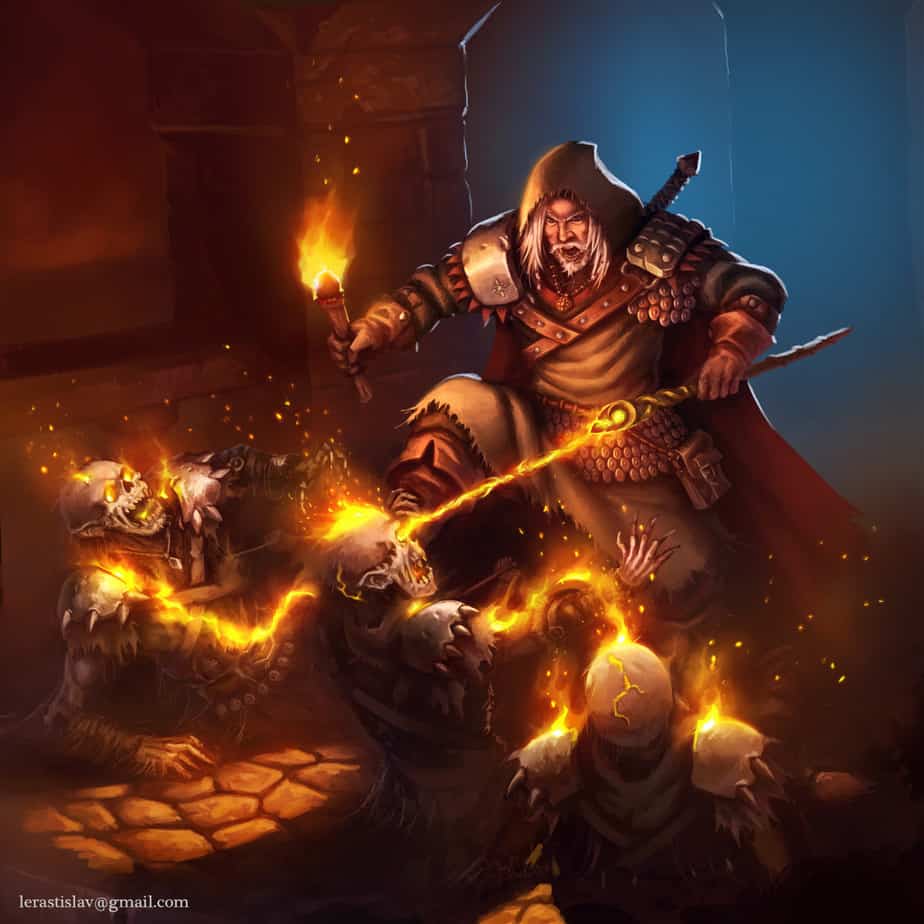D&D 5e: Human Cleric Guide

D&D 5e: Human Cleric Guide
Humans truly are the most versatile race, and not just because of their choice in statistics, or the variant feat, though these certainly help. They are the most versatile simply because of their ability to adapt to change.
As humans ourselves (hopefully), it becomes easy to think about how one of our race might act given a scenario. Clerics fit well into this image, given their versatility as a class. It does not outshine the versatility of others but rather focuses on being especially good in one category depending on the domain (subclass) you choose.
The Human race AND the Cleric class can be found in the Player’s Handbook. Click here to pick up your own copy of The Player’s Handbook!
How to Make a Human Cleric
I always advocate picking variant humans over regular, even if it might occasionally be a slice away from the most optimal choice. The reason for this is simply that the free feat you get allows you to expand upon your character in fun and interesting ways.
This means you’ll only get +1 to two different stats instead of all of them, so let’s use those wisely. First prioritize your wisdom score, as it’s what powers your class features and spellcasting abilities.
You really should choose your divine domain (subclass) before continuing to the rest of your stats however, as it may have an influence on your choice. For example, some cleric subclasses gain access to heavy armor, making strength more important than dexterity.
As a general rule however, prioritize dexterity second if your chosen subclass has no heavy armor access (but remember you could still gain it through that free feat if you want it!). Consider constitution after these, and the rest are up to you depending on the personality of your character.
As for the subclasses themselves, you’re probably already aware that clerics in D&D aren’t the heal-bots you may be used to in other games, even life domain clerics, can still give and take hits on the frontline with damaging spells.
Which roles you want to have in your party should be what define which subclass you pick. Clerics are so versatile in fact, that you could even play the “sneak thief” of your party with trickery domain, the “know it all” with knowledge domain (in which case, prioritize intelligence third).
How to Play a Human Cleric
Part of the versatility of a cleric is the fact that you already know all your spells, it’s simply a matter of which ones you have prepared for the day. Ever heard the argument that Batman could beat anyone with enough time to prepare?
Make sure you spend time before a long rest talking to the party about where you’re going and what you’re doing. To some extent, adventure means preparing for the unexpected, but at the same time, you can easily cycle your spells according to what is most useful.
In the case of combat, all clerics have access to healing spells, and seeing how HP is one of the primary resources you have to manage in D&D, makes you a very valuable addition to any party. In most combat scenarios, unless you’ve gone for a concentrating caster build, you’ll be right by the barbarian and the fighter, laying down the pain while supporting the team.
How to Roleplay as a Human Cleric
Religion is not really a requirement for paladins in D&D, but this is different for clerics. Just because there aren’t explicit rules around them as there were in previous editions, does not mean the idea should be discarded.
Does your cleric have to be a religious fanatic either, given their devotion and path? No, in fact, you could play them as rather unwilling if you so wished. Do consider who your chosen deity is and what it might mean for you as a member of human society. Not all of the gods are good after all, and not all are socially acceptable to worship.
Consider what practices your cleric might perform daily, how much they reveal to the party, or how much of their god they’re willing to talk about. Consider also the demeanor of your character, they’d naturally not behave in a manner unfitting to their station. None of this should be considered restrictive, rather use it as the catalyst for making interesting roleplay scenarios come to be.









